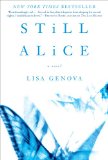Summary | Excerpt | Reading Guide | Reviews | Beyond the Book | Readalikes | Genres & Themes | Author Bio

"Well, you'll get to hear a good portion of it today."
"Recycling your talks these days, huh?"
Before she could answer, Gordon Miller, head of the department and her new superhero, swooped in and saved her by asking Josh to help pass out the champagne. Like at Harvard, a champagne toast was a tradition in the psychology department at Stanford for all faculty who reached the coveted career milestone of tenure. There weren't many trumpets that heralded the advancement from point to point in the career of a professor, but tenure was a big one, loud and clear.
When everyone was holding a cup, Gordon stood at the podium and tapped the microphone.
"Can I have everyone's attention for a moment?"
Josh's excessively loud, punctated laugh reverberated alone throughout the auditorium just before Gordon continued.
"Today, we congratulate Mark on receiving tenure. I'm sure he's thrilled to have this particular accomplishment behind him. Here's to the many exciting accomplishments still ahead. To Mark!"
"To Mark!"
Alice tapped her cup with her neighbors, and everyone quickly resumed the business of drinking, eating, and discussing. When all of the food had been claimed from the serving trays and the last drops of champagne emptied from the last bottle, Gordon took the floor once again.
"If everyone would take a seat, we can begin today's talk."
He waited a few moments for the crowd of about seventy-five to settle and quiet down.
"Today, I have the honor of introducing you to our first colloquium speaker of the year. Dr. Alice Howland is the eminent William James Professor of Psychology at Harvard University. Over the last twenty-five years, her distinguished career has produced many of the flagship touchstones in psycholinguistics. She pioneered and continues to lead an interdisciplinary and integrated approach to the study of the mechanisms of language. We are privileged to have her here today to talk to us about the Conceptual and Neural Organization of Language."
Alice switched places with Gordon and looked out at her audience looking at her. As she waited for the applause to subside, she thought of the statistic that said that people feared public speaking more than they feared death. She loved it. She enjoyed all of the concatenated moments of presenting in front of a listening audience---teaching, performing, telling a story, teeing up a heated debate. She also loved the adrenaline rush. The bigger the stakes, the more sophisticated or hostile the audience, the more the whole experience thrilled her. John was an excellent speaker, but it often pained and terrified him, and he marveled at Alice's verve for it. He probably didn't prefer death, but spiders and snakes, sure.
"Thank you, Gordon. Today, I'm going to talk about some of the mental processes that underlie the acquisition, organization, and use of language."
Alice had given the guts of this particular talk innumerable times, but she wouldn't call it recycling. The crux of the talk did focus on the main tenets of linguistics, many of which she'd discovered, and she'd been using a number of the same slides for years. But she felt proud, and not ashamed or lazy, that this part of her talk, these discoveries of hers, continued to hold true, withstanding the test of time. Her contributions mattered and propelled future discovery. Plus, she certainly included those future discoveries.
She talked without needing to look down at her notes, relaxed and animated, the words effortless. Then, about forty minutes into the fifty-minute presentation, she became suddenly stuck.
"The data reveal that irregular verbs require access to the mental..."
She simply couldn't find the word. She had a loose sense for what she wanted to say, but the word itself eluded her. Gone. She didn't know the first letter or what the word sounded like or how many syllables it had. It wasn't on the tip of her tongue.
Copyright © 2007, 2009 by Lisa Genova
Your guide toexceptional books
BookBrowse seeks out and recommends the best in contemporary fiction and nonfiction—books that not only engage and entertain but also deepen our understanding of ourselves and the world around us.